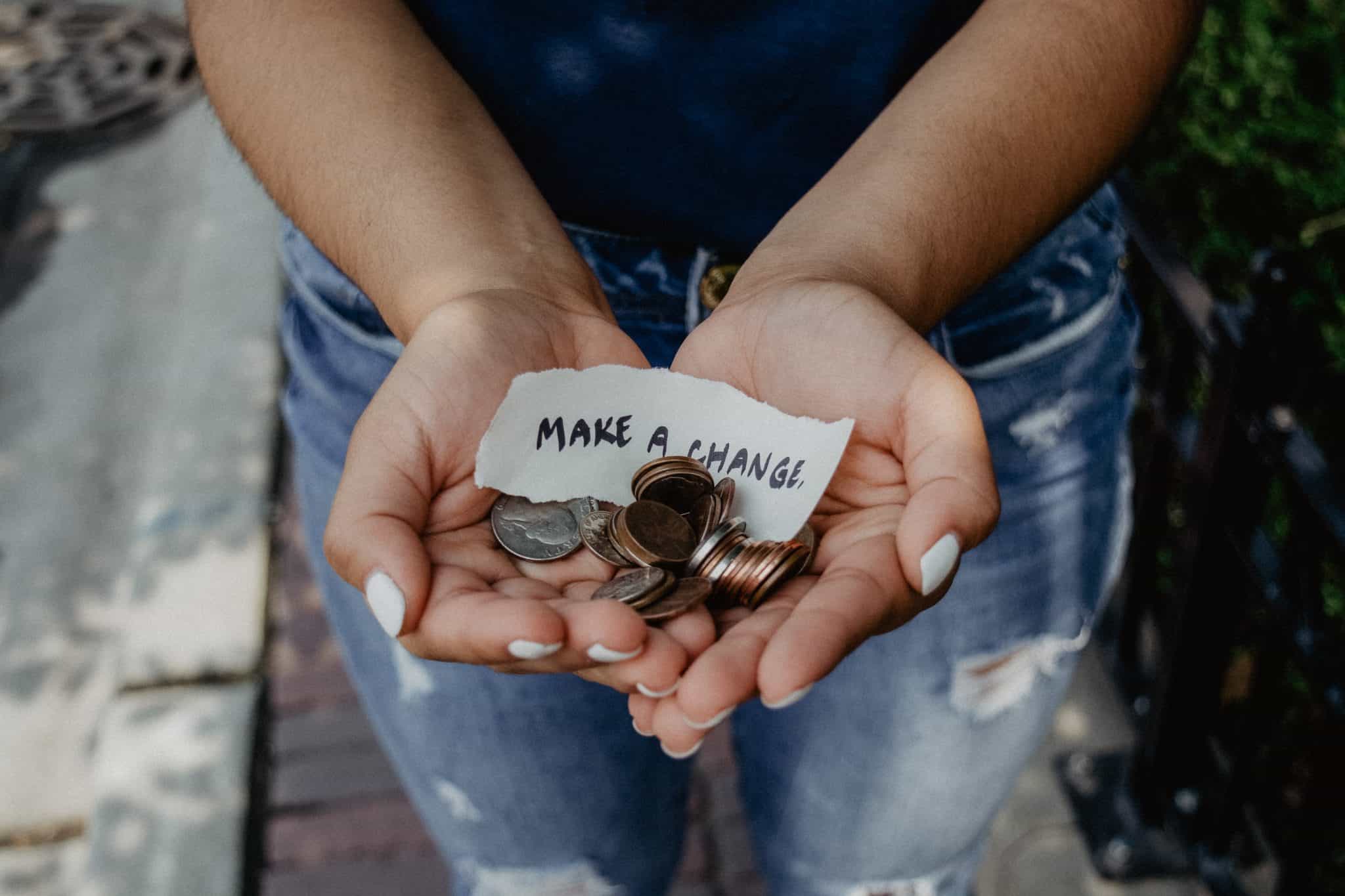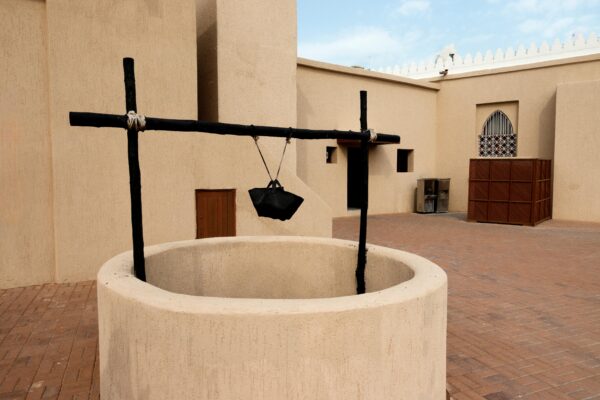
6 Wealth-Building Lessons from Khadijah (RA) Every Muslim Should Know
03 December 2025 8 min read


Ibrahim Khan
Co-founder
10 min read
Last updated on:
Someone sent me a message recently comparing charities who donate 100% of proceeds to the end recipient versus those who don’t. The implication is that anyone who fails to donate 100% of proceeds to the end-recipient is not as worthy a charity.
We as a community get very hung up about this and nearly all critiques of Muslim charities focus in on the overhead metric. But this article is not an article on overheads. Because that’s missing the wood for the trees.
I am not that interested in whether 75% or 85% of what we donate gets to the end-recipient – because I am uncertain that the end-recipient is the one who should be getting the money in the first place.
I believe that we need to continue giving as generously as we do, but be far more strategic about it. More of our money should be UK-focused. We should urgently work to set up a UK-centric waqf to carefully consider what the community needs are, and then spend to address them.
We are giving a lot of charity these days.
That is what makes it all the more important that we think carefully about this area. Every Ramadan, the British Muslim community gives approximately £100m to charity. Over a year we give anywhere between £550m – £1bn (depending on the estimates you go off). That’s about 5% of UK Muslim spending power.
That is a lot of money by any reckoning.
Enough money to buy a newspaper or two (the I newspaper was being valued at around £25m a few years ago), endow a bunch of Oxbridge colleges (endowments range anywhere between 25m to 1.4bn per college), and put 22,000 students through university for a year.
But are we thinking about doing any of the above?
Are we thinking about spending strategically, efficiently, and with the best interests of the British Muslim community being served? I am not so sure.
Here are a few reasons why:
Think NPC published a report in 2016 which showed that faith-based charities prefer spending on overseas aid.
Muslim charities in particular, disproportionately spend on overseas aid and human rights compared to even other faith-based charities.
Muslim charities in particular, disproportionately spend on overseas aid and human rights compared to even other faith-based charities.
So the data shows how much we like to spend charity abroad, but still may not capture the enormity of the problem. In a Times article, NZF estimated that of the approximately £300m spent in Zakat annually, 98% of it will go abroad.
Now I haven’t tested their analysis, but it sounds right from the fundraising campaigns we see going on all around us this month.
And there’s no easy fix to this either. To change this around will need a concerted effort.
Charities need to change focus. British Muslims need to become more cognisant of this and prioritise local spending, and the requisite infrastructure for charity delivery in the UK needs to be established.
But more on all this later, in the solutions section.
The Think NPC report also throws up another interesting trend: Muslim charities are smaller, poorer and younger than their faith-based counterparts.
Jewish charities, for example, “make up 4.65% of the faith-based sector but the proportion of their income is 6.19%. In comparison Muslim charities receive a lower proportion of the income (3.3%) compared to their representation in the sector (4.7%).”
Muslim charities are also generally smaller. 0.39% of Muslim charities are “major charities” (£10-100m) while equivalent Jewish and Christian percentages are around 0.75% – so almost double. Similarly 2.39% of Muslim charities are “large charities” (£1m – 10m) while the Jewish equivalent is 7.87% and the Christian is 2.99%.
Generally, larger charities have an element of an “endowment” built in, i.e. their annual income derives in part from investment income as opposed to pure fundraising. Take the Wellcome Trust, the UK charity with the largest endowment of ~£20bn, on which they make about 10% annually to spend on their various health grants.
As a Civil Society article explains, “The charity sector’s total investment assets are £113.7bn, of which £50.1bn is held by the top ten charities, and £74.2bn by the top 100.”
The data is clear: the biggest charities have the biggest endowments. Makes sense really. It’s far harder to crowdfund £2bn than it is to invest £20bn and make the same amount.
But let’s look at Muslim charities.
Most Muslim charities in England and Wales have been established for 10 years or less. This, combined with the fact that Muslim charities are poorer and smaller on average, suggests that there is a real lack of coordination here.
The numbers suggest there is a proliferation of charities each doing their own thing, without much coordination at the smaller end. There doesn’t appear to be much thought for building a sustainable model for the long-term, or about how to be strategic about the problems being tackled.
And this lack of strategy and mushrooming of the charitable sector is indicative of a more deep-seated issue.
We are a community of givers instead of a community of strategic philanthropists. We have become a community that puts the short-term charitable feel-good factor over genuine long-term and strategic impact.
This was a point that the founder of 5 Pillars, a Muslim UK media outlet, made to me in a recent podcast. Raising £125k of investment into 5Pillars would have been a real challenge, whereas raising £125k in donations was doable (and alhamdulilah they’ve done that).
As another illustration, Al Rayan, the main Islamic bank in the UK has £1.82bn in assets and attracts assets in the same ballpark as charities (about 3.3x – and bear in mind a whole bunch of Al Rayan assets are from non-Muslims so that multiple is actually far lower) while in the mainstream community this multiple is completely different. Charitable income stands at £55bn versus the 1.7 trillion [6] in retail deposits, giving a multiple of about 30x. So about 10x that for the Muslim community.
While this is obviously a very rough approximation, it makes the point quite vividly: Muslims are a community who like to over-allocate their resources within the community using charity, rather than investment and Islamic financial institutions.
I am aware that comparing a charity to a bank is comparing apples and oranges, and my point isn’t that we shouldn’t give to charity and just put our money into an Al Rayan savings account.
My point is much broader than that.
We need a new waqf (or for existing Muslim charities to come together and create this) that we each have a standing order to, which forms a significant percentage of our total spending – perhaps 60% of it. This waqf needs to be the strategic hub which employs academics, strategy consultants, scholars and practitioners to map out exactly where there is a need within the Muslim community, what our strategic long-term goals should be, and how to get there.
Here are a bunch of issues we could be addressing through this waqf:
“Okay Ibrahim, all this sounds great, but doesn’t it pale in comparison to the awful suffering we see Muslims go through globally?” you might say. “Therefore we should just carry on spending abroad.”
I have two responses to that.
Firstly, there are numerous ahadith about prioritising those nearest you first.
The Messenger of Allah, (SalAllahu alaihi wasallam) says:” He is not a believer who eats his fill whilst his neighbour beside him goes hungry” (Sahih al-Bukhari).
Abu Dharr, May Allah be pleased with him, reported: The Messenger of Allah, (SalAllahu alaihi wasallam), commanded me thus, “O Abu Dharr! Whenever you prepare a broth, put plenty of water in it, and give some of it to your neighbours” (Sahih Muslim).
The Messenger of Allah, (SalAllahu alaihi wasallam), said: “Jibril kept recommending me to treat my neighbour well until I thought that he would tell me to make him one of my heirs” (Sahih al-Bukhari).
Ibn Jarir related that Abu Hurayrah said that a man said, “O Messenger of Allah! I have a Dinar (a currency).” The Prophet said: (Spend it you on yourself.) He said, “I have another Dinar.” He said (Spend it on your wife.) He said, “I have another Dinar.” He said: Spend it on your offspring.) He said, “I have another Dinar.” He said: (You have better knowledge (meaning how and where to spend it in charity).) (Sahih Muslim)
Abu Huraira (radi Allahu anhu) reported Allah’s Messenger (sal Allahu alaihi wa sallam) as saying: “Of the dinar (money) that you spend as a contribution in Allah’s path, or to set free a slave, or as charity given to a needy, or to support your family, the one yielding the greatest reward is that which you spend on your family.” (Sahih Muslim)
Narrated Abu Huraira (radi Allahu anhu): Allah’s Apostle (sal Allahu alaihi wa sallam) said, “The best alms is that which you give when you are rich, and you should support your dependants first.” (Sahih al-Bukhari]
Similarly, another hadith that shows the prioritisation of the near over the far is: “Whoever among you sees an evil action, let him change it with his hand [by taking action]; if he cannot, then with his tongue [by speaking out]; and if he cannot, then with his heart [by at least hating it and believing that it is wrong], and that is the weakest of faith.” (Sahih Muslim)
Secondly, I completely accept that people globally are in great suffering. But we can actually help much more in 5 years’ time than we can right now if we are clever about it.
To deal with world hunger it will take $267bn per year. Your donation will realistically have negligible impact (if the entire Muslim population put in donations of $1bn into this we’d make up 0.37% of the required amount).
But if we invested in stuff that grew us as a community by tenfold, then we’d hit 3.7% in a few years’ time.
So a Muslim Eton and all the students it will produce, a private equity and venture capital fund in Muslim entrepreneurs (and discovers the next Facebook), a stronger voice fighting for public funding into deprived areas, and a think tank outlining how such public funding could be most impactful – when all that is combined, the sky is the limit.
But that requires foregoing the short-term fixes and investing in the long-term. It requires investing in the unglamorous stuff.
Funnily, it’s the same problem faced by governments and companies. Investing in the short-term gives great tangible and visible results. Voters and shareholders love it.
Thing about it like Nike spending on Facebook ads to drive customers to its product page and trying to convert clicks to purchases, versus Nike spending on a slick commercial with a bunch of the world’s most famous footballers.
The latter obviously has no real tangible, measurable or immediate impact on Nike sales. And yet it is why Nike is such a great business. Because Nike, and every great company, invests in its brand and in the intangible long-term stuff.
It’s why Amazon hasn’t stopped growing over 20 years. Every year they could sit back and chill and take the profits, but they were relentless about growth and taking market share, so that now when they do actually start taking profit, it is in the billions annually.
Just like Nike and Amazon, the British Muslim community needs to have a vision and then needs to execute on it. We need to forego a few short-term wells in Africa this year, so that we might deal with the water-shortage problem once and for all in a decade.
I am very cognizant that the last 10 days of Ramadan are approaching fast, and this is a month of charity. The message I want to leave you with is not one of putting away your wallets and purses for the month, but one of being thoughtful about where you give.
There is absolutely a place for giving to mainstream charities and for giving abroad (My Ten Nights and Quran Club are innovative ways of doing this), but it needs to be part of a diversified charity portfolio.
This portfolio should also include charities and NGOs that focus their work within the UK. People like MEND, NZF, 5 Pillars, Islam 21C, MCB, The Muslim Vibe, MADE, Muslim Hands UK projects, etc. (N.B. I am not intimately aware of the work of each of these organisations and the relative impact a donation to each one will have. I mention them as a flavour of what I am getting at.)
But a lot more needs to be done and it requires:
I am aware this is a sensitive subject and many people have views on this – and I would love to hear yours in the comments below.
If you found this beneficial, don’t keep the khayr to yourself and share this with someone! The Prophet ﷺ said: “Whoever guides someone to goodness will have a reward like one who did it.” (Muslim 1893)
For more financial lessons from the Qur’an, you can download our free ebook containing 30 bitesize lessons on how to manage your money in a way that pleases Allah here.

03 December 2025 8 min read

26 November 2025 6 min read

13 August 2025 12 min read
Leave a Reply